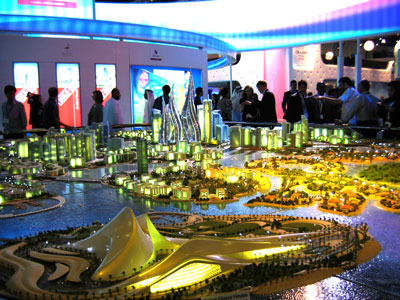Research
Construction work, migration and urbanization
The construction sector is vitally important to questions of social and environmental sustainability in cities. The industry is one of the largest employers worldwide, and a major provider of urban jobs (both formal and informal) that are often poorly-paid, dangerous and highly insecure. It is also directly implicated in a host of environmental challenges currently facing urban (and urbanizing) centres, ranging from the sector’s contribution to landfill waste, to urban energy consumption, to the heat island effect generated by the built environment. My work is informed by three strands of scholarship: the work of postcolonial urban scholars such as Jennifer Robinson and Ananya Roy whose work focuses on cities and urbanization in the Global South; feminist perspectives on precarious migrant work and employment such as the work of Rachel Silvey, Linda McDowell and Jane Holgate, and Marxian (urban political economy and ecology) conceptualizations of capitalist urbanization. My current research explores the role that migrant construction workers play in contemporary processes of city-building. My longer term research will focus on the intersections between precarious construction work and environmental sustainability in cities.
Building the global Gulf city: Tracing flows of transnational construction capital and labour in Dubai
 My work has mapped the transnational flows of construction finance and labour involved in Dubai’s real estate markets in Dubai, UAE. This work has traced the activities of key players such as private foreign investors, private equity firms, European banks and Islamic financial institutions in developing new financial instruments capable of funding the city’s building boom. Through this, I point to the importance of urbanization – and specifically of real estate and construction markets – as a central strategy for constructing new financial markets and other productive circuits of capital in the region, a development agenda that I conceptualize through the notion of ‘diversification by urbanization’.
My work has mapped the transnational flows of construction finance and labour involved in Dubai’s real estate markets in Dubai, UAE. This work has traced the activities of key players such as private foreign investors, private equity firms, European banks and Islamic financial institutions in developing new financial instruments capable of funding the city’s building boom. Through this, I point to the importance of urbanization – and specifically of real estate and construction markets – as a central strategy for constructing new financial markets and other productive circuits of capital in the region, a development agenda that I conceptualize through the notion of ‘diversification by urbanization’.
A second, interrelated thread of this work examines the impacts of financialized urbanization on lower-waged construction migrants. In the wake of the 2008 global financial crisis, I show how workers’ experiences of job-loss and return migration from Dubai were not simply a result of the city’s speculative urbanization strategies but also reflect the integral role that temporary migrants have played in offsetting the risks of speculative urbanization processes across a diversity of cities internationally. In conjunction with these ‘global’ dynamics of vulnerability, I also conceptualize Dubai’s urbanization as a process that operates through the micro-scaled production of racially- and sexually-delineated forms of citizenship among migrant builders. Through an examination of the state’s employment of socio-spatial technologies of segregation aimed at migrant builders, such as the all–male labour camp, I draw from intersectional and feminist political economy frameworks to highlight how the production of subjugated and pathologized forms of subjecthood among working class South Asian builders is fundamental to the political economy of urbanization.
My doctoral research and studies were supported by the Canadian Social Sciences and Humanities Research Council, the University of Oxford’s Overseas Research Scheme, and the Rajiv Gandhi Foundation.
CURRENT RESEARCH
under construction….
